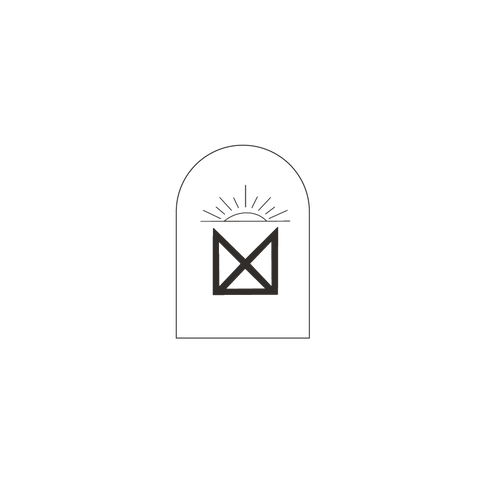AMAZI Co-founders, Divya Vasant and Sekela Lisa Mgcotyelwa took to IG Live to balance the narrative and talk intimately about how dark the entrepreneurial journey really can be.
After a few technical difficulties and a perfect example of how entrepreneurship can sometimes seem like it never goes your way, the conversation kicks off. We all are aware that Covid-19 has caused many women to lose their jobs, particularly in retail. Through this, Divya was messaged by a woman who believed Divya had “made it” and if she could mentor her in entrepreneurship. This scared her, as even though going digital has enabled AMAZI to have more access to stories of entrepreneurship, they're often incomplete. This can influence young women who are looking for these stories to begin their own journey in entrepreneurship. This conversation is needed to shed light on how dark this journey can get. A positive mindset is crucial to this path, but creating a space to talk about what is dark, difficult and debilitating doesn't take away from the positive affirmations and exercises that we do as entrepreneurs.
Like many, when Divya began her entrepreneurship journey she didn’t have a lot of exposure to how other women on this journey can go through real trauma. Having this exposure can help you become more aware of what is possible and help you deal with difficulties a bit differently. A big misconception that people make is that being an entrepreneur means you’ve already made it and had a stable income. This is not true, as it's a journey with many ups and downs.
Lisa shares that her dark moment with entrepreneurship was a lack of family support. This is felt most when you need support and help, and you don’t know where to turn to. Not being able to say “I need your help” or “I am struggling”. Often this is when we put our happy faces on and pretend that everything is alright, which can do more harm. Causing depression or anxiety to avoid reaching out and being seen as a “failure” by family. As the saying goes, “fake it till you make it”, is actually a very painful and toxic space to be in.
Divya relays her own traumatic experience, where she had personally invested time, money and energy into an aspirational, intelligent young woman as her first intentional impact creation. However, things developed unexpectedly. A substantial amount of money became unaccounted for that she was responsible for banking into the account. What she stole was the salaries of the 16 women that Divya had incubated into the beginnings of the AMAZI ecosystem. This lesson had such an effect on Divya that she went into shock and grief as it was the very first time she tried to create space and support another woman.
Shortly after that, Lisa joined as Co-founder and the first investor was on board. The next plans were to set up a base in Johannesburg and open up the first store and academy. After a year of relationship building with the investor, they were able to start putting down construction costs for the new building. Everything seemed to go well but on a site check, nothing was done. The construction company had been using the deposits, secured from the investor after a long trust process, to fund other projects while the AMAZI site sits in the dust. This experience can show how what you’re doing towards your goal may seem like the right track, and then something comes along that undoes all that work and affirmations. After figuring out a way to get construction finished, everything was up and running.
These two accounts of the dark side of entrepreneurship highlight a few important lessons that Divya and Lisa began to put in place.
- Thorough due diligence is necessary regarding the people you chose to work with; Are expectations clear from either side? Are requirements clear?
- Trust will get broken but it’s important to stay positive
As brown and black women, often our stories include a devastating trauma that puts us into darkness and we need to push ourselves to find the light. It may seem like a cycle, but once you’re aware of what life may bring, it may become easier.
“Made it” is not a destination in the entrepreneurial journey, it can come and go with some difficult moments in between. Putting someone on a pedestal only allows them to crash in your mind once they show a little fragility. This can change the relationship to become angry and even aggressive. Insecurities and personal narratives brought into spaces can affect how we interact with each other, particularly as women in South Africa. For Divya and Lisa, it’s important to be able to share and exist without being seen as the saviour or to be put on a pedestal as it discolours the real experience and story. As a female entrepreneur, for Divya, creating space and support for other women can be traumatic in and of itself. Creating these spaces with women and for women can be hurtful when unreal expectations of the space aren’t met because of previous narratives. So, it forces the external image to be one of positivity, strength and resilience.
Navigating combative forces from men is another traumatic experience that requires you to keep pushing your presence into spaces that discount you or refuse to see your worth. At the end of the day, feeling exhausted and depleted after managing all these expectations can become the norm. It can also be lonely to build a business. A personal story that left Divya feeling lonely happened when she was confronted with an unexpected SARS bill and a few team members did not see the problem as theirs. Brown and black women often don’t have the space to be vulnerable and be human which puts pressure on each other and ourselves to put on a mask and look like we’ve made it and can handle everything. This mask can look a certain way on social media and portrays a false reality of women entrepreneurs.
The narrative needs to be balanced. We need to show how we navigate the darkness to get to the light and show the reality of the journey. We need more of these conversations that tip the needle and highlight the real problems women entrepreneurs face. Be it SARS bills, requiring spaces in malls or being “priced” because you are seen as having nothing to offer. If we don’t have these conversations, we make it seem like this path is easy. And that’s not the case. Although, with real connections and conversation about the dark moments we can shift the narrative and show that it can become easier to navigate with time. Sometimes all we need to do is accept the difficult periods and be okay with it at that moment.
“There is no light without darkness."


Comments
Shamira said:
A brave account of challenges faced by young women entrepreneurs. So proud of you and Lisa for all embracing your challenges with resilience, picking up the pieces and moving ahead. Moreover, sharing the impact of the emotional trials at a personal level is inspiring!
May 25, 2022